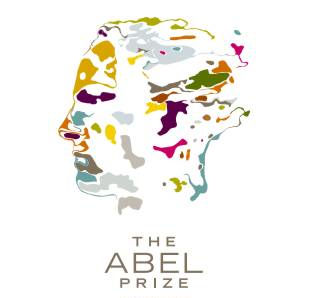| 2021 Abel Prize Shared By Math and Computer Science |
| Written by Mike James | |||
| Thursday, 18 March 2021 | |||
|
This year's winners of the Abel Prize, regarded as one of the highest honors in mathematics, are Avi Wigderson and László Lovász for their contributions to complexity theory and graph theory, which link math and computer science.
The Norwegian Academy of Science and Letters established the Abel Prize in 2002 to recognize contributions of extraordinary depth and influence to the mathematical sciences. It was first awarded in 2003 and previous winners include Andrew Wiles for proving Fermat’s Last Theorem (2016) This year the prize of 7.5 million Norwegian kroner, or about $880,000 is shared by László Lovász of thev Alfréd Rényi Institute of Mathematics and the Eötvös Loránd University, Budapest, Hungary, and Avi Wigderson of the Institute for Advanced Study, Princeton, USA: “for their foundational contributions to theoretical computer science and discrete mathematics, and their leading role in shaping them into central fields of modern mathematics”. The work in which they have both been involved, ‘computational complexity’ which concerns itself with the speed and efficiency of algorithms and first emerged in the 1970s, is now an established field of both mathematics and theoretical computer science and provides the theoretical basis for internet security. Hans Munthe-Kaas, a mathematician at the University of Bergen in Norway, who was the chairman of the Abel Prize committee explained that both Lovász and Wigderson have made fundamental contributions to understanding randomness in computation and in exploring the boundaries of efficient computation saying: “Thanks to the ground-breaking work of these two, discrete mathematics and the relatively young field of theoretical computer science are now firmly established as central areas of modern mathematics.” László Lovász (left), born in 1948 in Budapest, Hungary, has established connections between discrete mathematics and computer science. With Arjen and Hendrik Lenstra, he developed the LLL lattice reduction algorithm, whose applications include factorizing rational polynomials, breaking certain cryptosystems, and designing secure lattice-based cryptosystems. Among other important contributions to combinatorics and graph theory, he proved the Local Lemma, showed how to efficiently solve semidefinite programs, and solved the Kneser conjecture. His previous awards include the 1999 Wolf Prize, the 1999 Knuth Prize, the 2001 Gödel Prize and the 2010 Kyoto Prize. Avi Wigderson (right), born in Haifa, Israel, in 1956, has conducted research into every major open problem in complexity theory. He has co-authored papers with more than 100 people and has deepened the connections between mathematics and computer science. The most important present-day application of complexity theory is internet cryptography. Early in his career, Wigderson made fundamental contributions in this area, including the zeroknowledge proof, which is now used in cryptocurrency technology. His previous awards include the 1994 Rolf Nevanlinna Prize for computer science, the 2009 Gödel Prize and, as we reported at the time, the 2019 Knuth Prize, According to Munthe-Kaas, these two laureates have: “really opened up the landscape and shown the fruitful interactions between computer science and mathematics."
More InformationRelated ArticlesAbel Prize For Proving Fermat's Last Theorem Complexity Theorist Gets Abel Prize Knuth Prize 2019 Awarded For Contributions To Complexity Theory {loadposition signup)
Comments
or email your comment to: comments@i-programmer.info
|
|||
| Last Updated ( Tuesday, 16 April 2024 ) |




